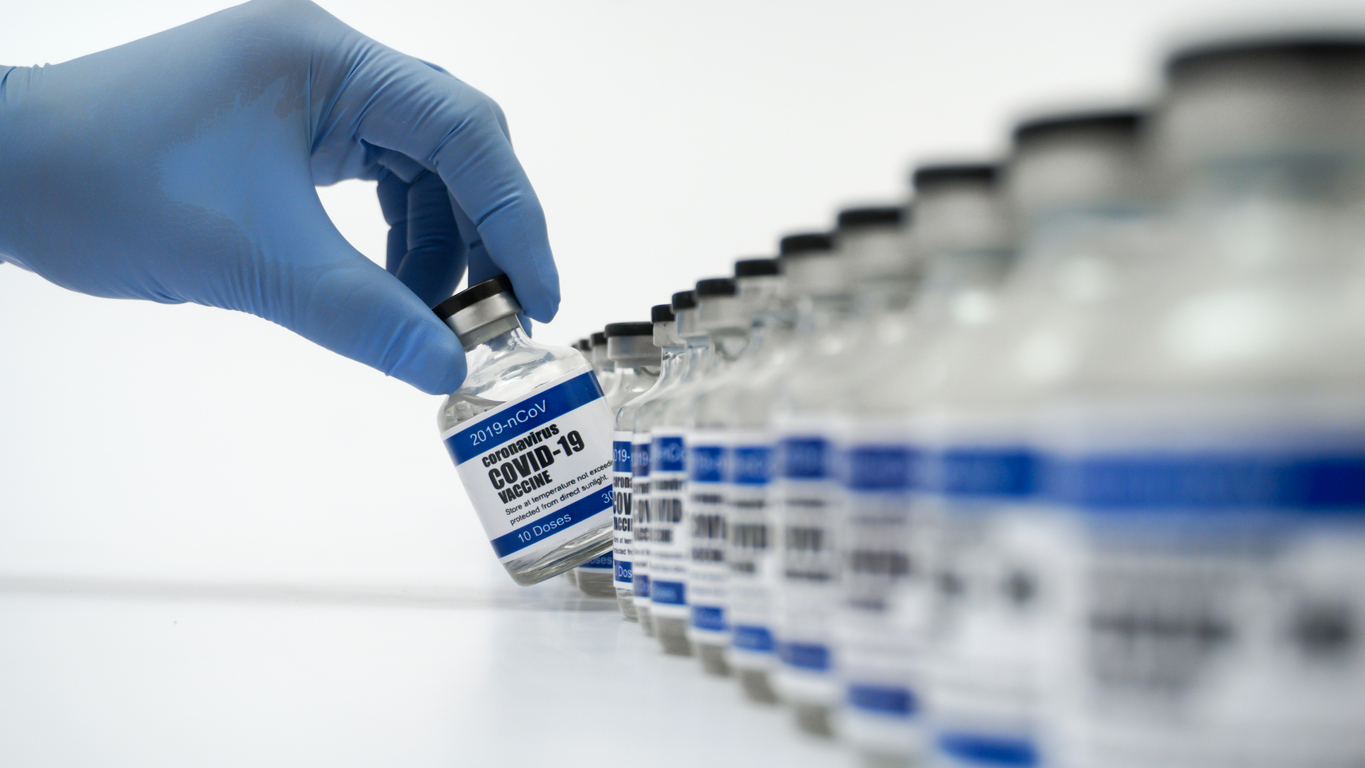
Explainer: Why India’s COVID vaccine production could be slowing down

In the run-up to his inauguration, which formally took place on January 20, Joe Biden had unfolded a series of steps to boost domestic production of COVID-19 vaccines. One of the measures the new president took a serious look at was the Korean War-era Defense Production Act. The 1950 Act gives the US president the power to mobilise domestic industry so that the supply of essential materials and services is maintained for purposes of national defence.
Biden and his advisers have promised aggressive use of the law, which was invoked 18 times by the Trump administration in relation to vaccine production.
The larger fallout from that Act was felt by the Pune-based Serum Institute of India (SII), the Indian biotechnology and pharmaceutical firm that is the world’s largest vaccine manufacturer. The SII is producing the Covishield vaccine under the United Nations’ Covax programme, which seeks to supply more than 300 million doses to 145 countries.
Adar Poonawalla, SII’s chief executive officer, recently talked about hurdles in scaling up the production of the vaccine. He said US and Europe are holding back critical raw materials needed for vaccine production. US and European countries have banned the export of several key raw materials required for the production of the vaccine, severely hitting production in India. The list includes things such as filters and bags as well as key chemicals like adjuvants.
Also read: Non-BJP-ruled states, Centre spar over vaccine shortage as COVID cases surge
“I wish I could go there and protest in the US myself to say that you are holding back critical raw material that is required for Covax and so many vaccine manufacturers in India and other parts of the world.” Adar Poonawalla has been quoted as saying.
Here’s an explainer how things have turned difficult for vaccine manufacturers in India:
Raw materials: Adjuvant. It is a substance that increases the immune system’s response to the presence of an antigen. It is used to improve the effectiveness of a vaccine. An adjuvant helps the immune system generate antibodies.
A manufacturer can build a fresh supply chain for other raw materials like filters and bags; the vendor for the adjuvant cannot be changed. The reason is a vaccine that gets an approval after human trials is made with a certain adjuvant. So any change to this would lead to fresh clinical trials besides fresh approvals.
Also read: Govt to fast-track nod for foreign jabs as vaccination count nears 11 crore
Here lies the problem: India has a major challenge inoculating its 136 crore population. Poonawalla has said SII production capacity is “very stressed” and urged more vaccine makers to ramp up production. He said: “We can step up the stockpiling of Covax [the WHO-backed vaccine sharing programme] stocks by around 50 per cent if we have access to US raw materials.”
Delayed supplies: SII has faced difficulties importing cell culture media, single-use tubing and specialised chemicals from the US. Another Indian manufacturer, Biological E, which is producing J&J vaccine, has also raised concerns about possible shortages affecting vaccine production. A top official of the company has said US suppliers were “reluctant to commit that they will stick to their delivery timelines”.
‘Legally obliged’: The global vaccine alliance Gavi, a partner in Covax, is reported to have said that the SII is legally obliged to provide vaccines for the scheme. It has also warned those countries taking part in Covax to expect delays to deliveries in March and April. The SII has also made bilateral commercial deals amounting to more than 900 million doses of AstraZeneca vaccine, and 145 million doses of Novavax, according to UN data.
Self-reliance: For domestic manufacturing of the adjuvant, Hyderabad-based Bharat Biotech has collaborated with the Council of Scientific and Industrial Research to work on technologies for novel vaccines, drugs, and even raw materials.


